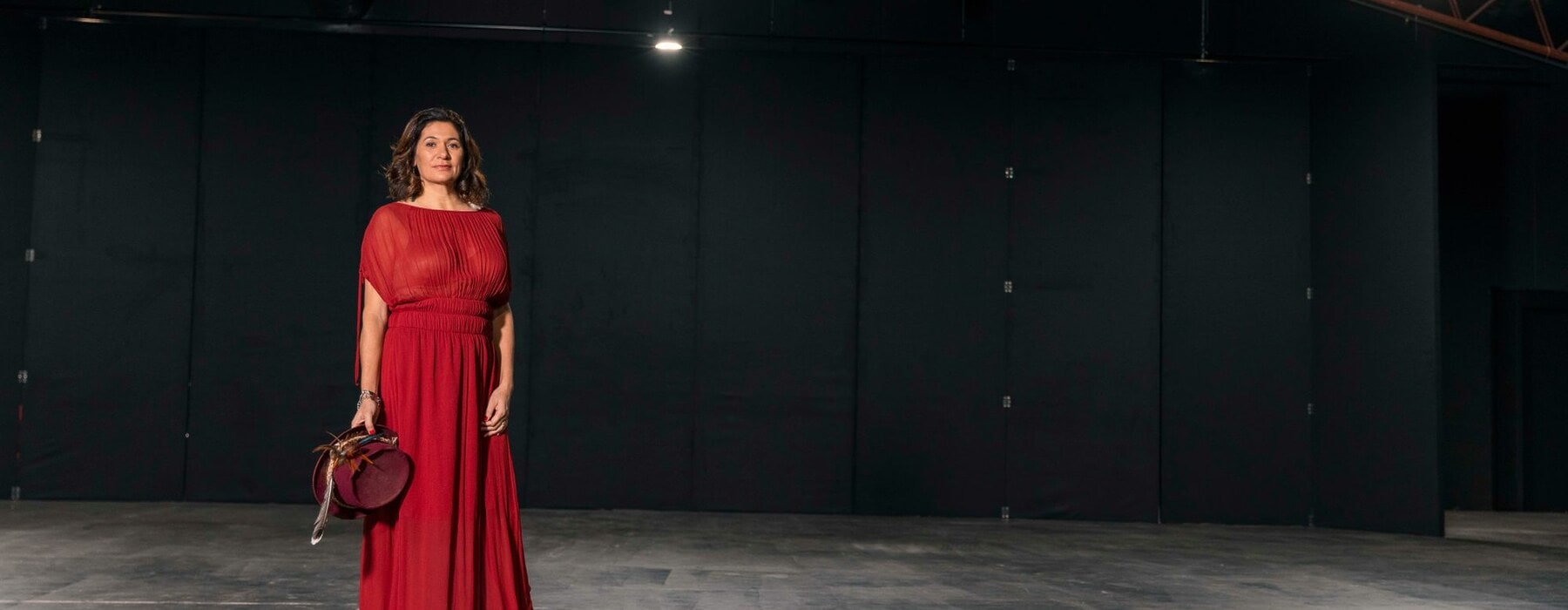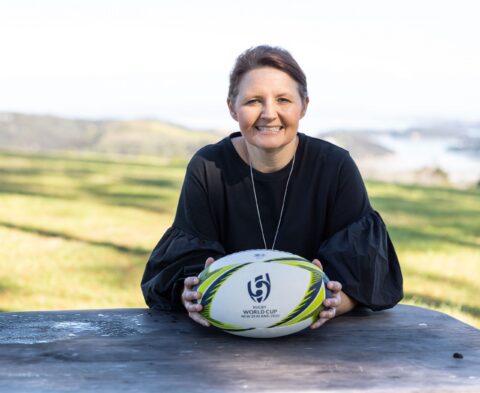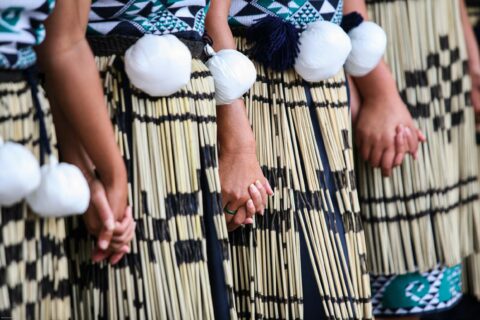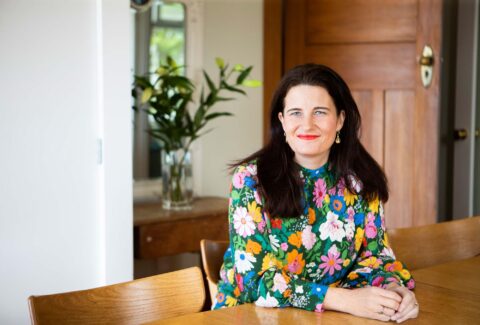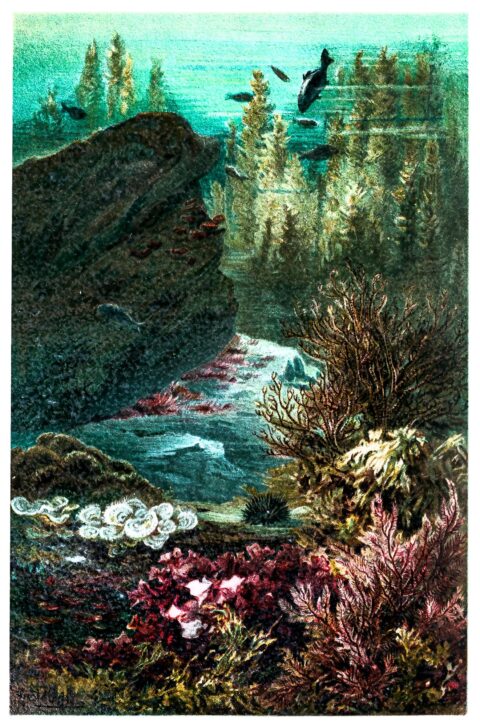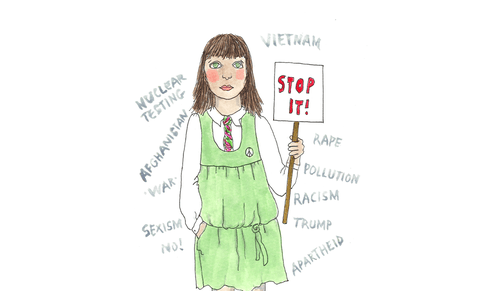In some spaces, the name Lucy Takiora Lord is not to be uttered. Actor Nicola Kāwana tells Siena Yates why she’s putting her ancestor’s story centre stage.
For decades, actress Nicola Kāwana has been haunted by her tupuna Lucy Takiora Lord.
Lucy wanted her story told, says Nicola, but that was difficult because she was also what’s known as a kūpapa.
“Kūpapa,” Nicola explains, “is the word that was given to Māori who worked for the British; they would be paid – because they knew the language and the way – to lead troops into the whenua.”
Lucy not only assisted the Crown in purchasing iwi land, but effectively led British soldiers to battle against her own people in the Taranaki land wars – a betrayal that would stain her name for generations, so much so her grave is unmarked to this day and her name is simply not uttered in certain areas; to bring it up is to bring up a lot of past pain.
But the Kiwi star couldn’t give up the idea of bringing her tupuna to life, and for the first time in her 30-year acting career, Nicola stepped off the stage and put pen to paper to write her debut play, Kūpapa.
The play will be on at Auckland’s Te Pou Theatre until July 10, and is the culmination of years of research, but also a decent peppering of fear and doubt.
“I actually don’t know if I intentionally wrote this play, I just kind of couldn’t get rid of [Lucy],” says Nicola, with a smile. “Her being a kūpapa, I just went, ‘I don’t want to write that story, people are gonna get really shitty about that.’ I was always too scared that I would be ‘othered’ myself, or that I would offend Māori women or whoever else, but then I turned 50 and I went, ‘Oh, f*** it, I don’t know how much life I’ve got left.’”
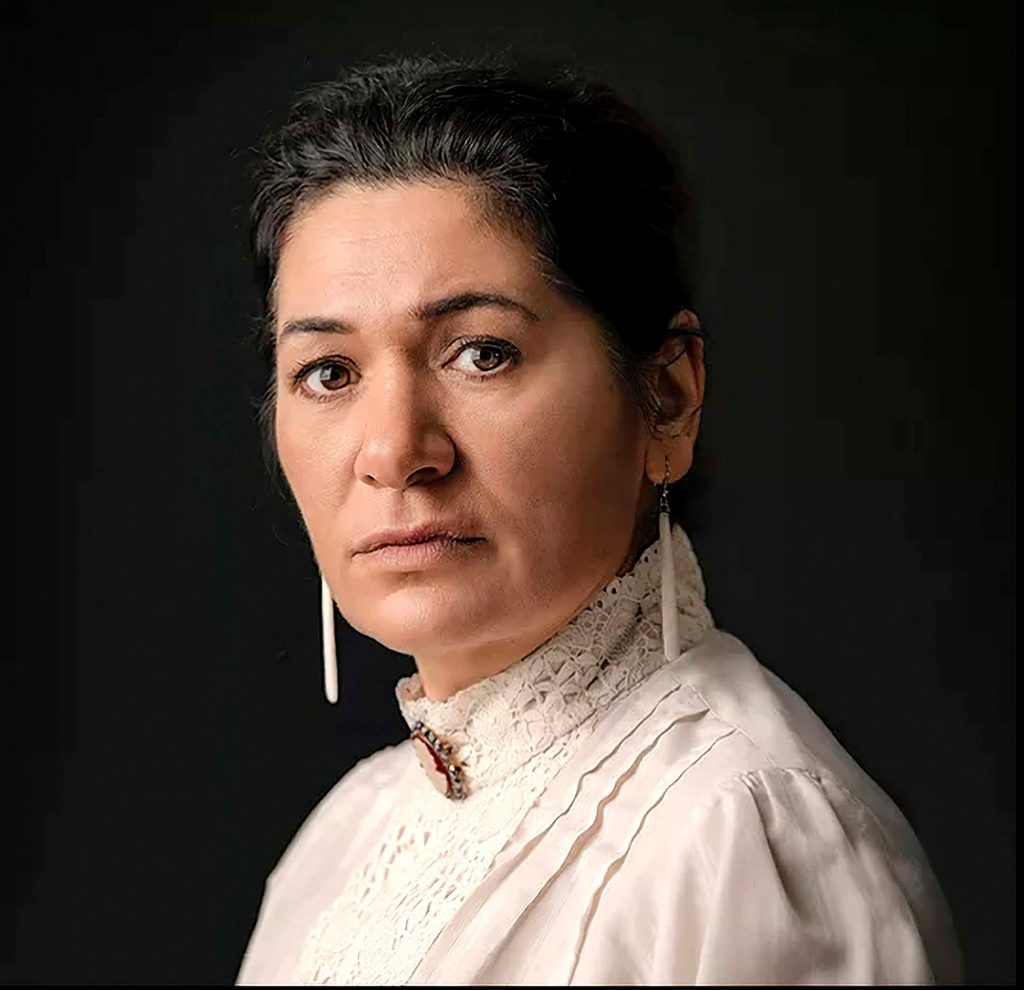
Nicola (Ngāruahine, Ngāti Ruanui, Ngāti Kāhungungu and Rangitane) first discovered Lucy Takiora Lord in the library as a student at Toi Whakaari when she was just 23, and ever since Nicola says, “She just seems to have followed me around.”
It wasn’t until a cousin gave Nicola a print-out of the whānau whakapapa that she was able to directly link herself to Lucy, discovering she was her great-great-aunt. “That was like a big ‘Whoa, she’s one of ours!’ has been haunted by her tupuna Lucy Takiora Lord.
Lucy wanted her story told, says Nicola, but that was difficult because she was also what’s known as a kūpapa.
“Kūpapa,” Nicola explains, “is the word that was given to Māori who worked for the British; they would be paid – because they knew the language and the way – to lead troops into the whenua.”
Lucy not only assisted the Crown in purchasing iwi land, but effectively led British soldiers to battle against her own people in the Taranaki land wars – a betrayal that would stain her name for generations, so much so her grave is unmarked to this day and her name is simply not uttered in certain areas; to bring it up is to bring up a lot of past pain.
I always meant to write something but didn’t know what it was, so over the decades I’ve just been gathering more and more information,” says Nicola.
“The frustration is that in all the history books written by Pākehā men, she’s just a tiny little paragraph. All we’re hearing is mostly about men, yet she was a wahine working actively on the war front, so it was intriguing for me to try and figure out who that person was with the scant bits of information that I had, and to try and understand why she was there in the first place; why she had returned to Taranaki to fight against her own whanaunga.”
In all the history books written by Pākehā men, she’s just a tiny little paragraph
The 51-year-old, who is mum to Eden, 31, and Solomon, 20, lives in Auckland with her husband Ian Flynn. When she’s not acting or writing, she can usually be found in her amazing garden, or tending the gardens of others through her horticulture work.
Nicola studied drama with Taranaki Youth Theatre in the 1980s, but is perhaps best known for her role on the iconic TV soap Shortland Street, where she played Dr Huia Samuels from 2005 to 2006. She’s also starred in shows including Mercy Peak and Jackson’s Wharf, as well as presenting on Whānau Living and Get Growing.
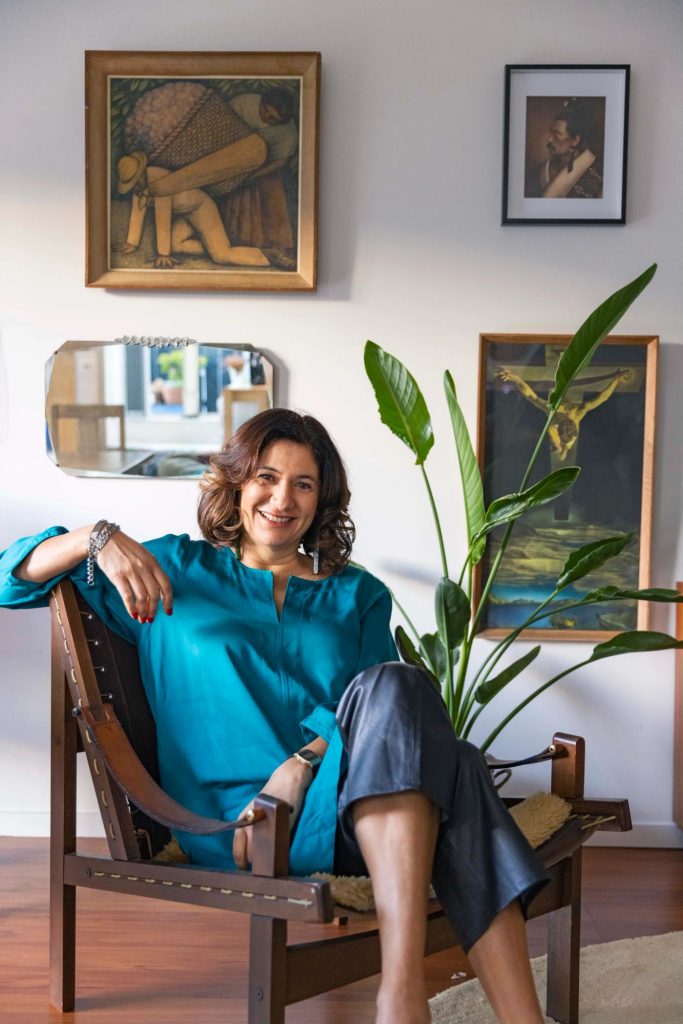
But with Kūpapa, she’s found great joy in te ao Maori, and tells us there were many tohu (signs) along the way, telling her it was the right thing to be doing. She tells us she received a message out of the blue from a matakite (psychic/prophet) passing on a tupuna’s reassurance at the exact moment she was fretting about it.
“Even though it’s a little bit contentious, it was really clear that I was well protected by my own tūpuna,” she says. “It was stuff that made it really clear to me I was doing what I was supposed to be doing, in a really good way, in a really reassuring, calming, supportive way.”
Through her extensive research, Nicola says she can see clear links to the kind of woman Lucy was.
“There’s a bit of a theme with us of being quite defiant and bolshy, and kind of confrontational,” says Nicola. “There’s a definite theme through my aunties and my kuia of, like, ‘No one’s the boss of me.’”
There’s a definite theme through my aunties and my kuia of, like, ‘No one’s the boss of me’
There was also the simple fact that Nicola was all too aware of how few Māori stories get told on stage and how fewer still are wāhine Māori stories.
“I’ve been working in theatre for over 30 years; I’ve seen and been in a lot of theatre and I know what it is I want to see on stage, and I don’t see that very often. So it’s a matter of getting a bit hōhā about what I’m not seeing and going, ‘I want to create the show I want to see.’
She also points to what she sees as the prevailing “male-dominant narrative”.
“We always talk about the men, which is confusing because I come from a really strong matriarchal line on my Taranaki side where I grew up. Women were the pou of my whānau. But as a brown woman working in this industry, it’s just horrible. The older you get, the less and less you get. You literally get jobs where you’re just standing behind a man being someone’s wife or maid or something and the roles I see for women in general are not the women that I know, they’re not the conversations of the women that I know. So a lot of that is that drive – that now is the time to see that.”
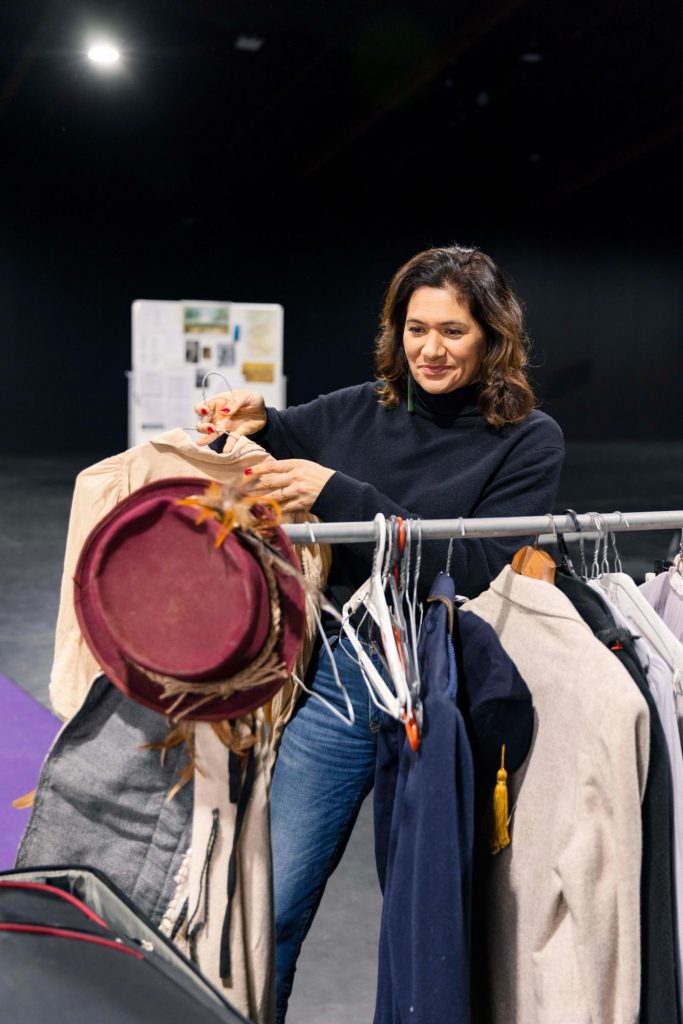
PHOTO BY LUKE HARVEY
There’s also misogyny at play in Lucy’s story, Nicola points out.
“Lucy’s name’s a bit of a dirty word to some people. When I was in Parihaka years ago, I mentioned her name and they went, ‘We don’t say that woman’s name here.’ Which, to a storyteller, is just bait,” she laughs. “It’s like, ‘Why not? What’s the drama? There must be drama!’ But part of that, I’ve come to understand, is because she’s a woman. There are a lot of tāne who did exactly what she did at the same time, but they don’t have that same kind of hatred attached to their names. But you know, that still goes on, doesn’t it? Look at female politicians, they still get more s*** than men.”
The point of Kūpapa is neither to stand up for or vindicate Lucy, nor to pile on the hatred, it’s simply to tell the story as wholly as possible and explore the grey area of morality, humanity and what drove kūpapa like Lucy.
“I guess I want to open the conversation of, what did survival look like back then? What did allegiance look like? And how complicated being human is; there’s no baddies or goodies, I wanted to take the heat out of how harshly we judge people”
That applies not just to the likes of Lucy, but to Nicola herself and all Māori struggling with reclaiming their identity and feeling like they’re struggling to fit it in or have no right after living so long in te ao Pākehā.
“Every single one of us has these stories in our whakapapa,” says Nicola. “We are all descended from amazing stories and I don’t think we can tell enough of our history through our lens, especially in this current climate. So I’m hoping that more people will start telling them and taking up more space out there. Now’s the right climate. We’re about to introduce into schools learning the actual history of this land. Now is the time.”

